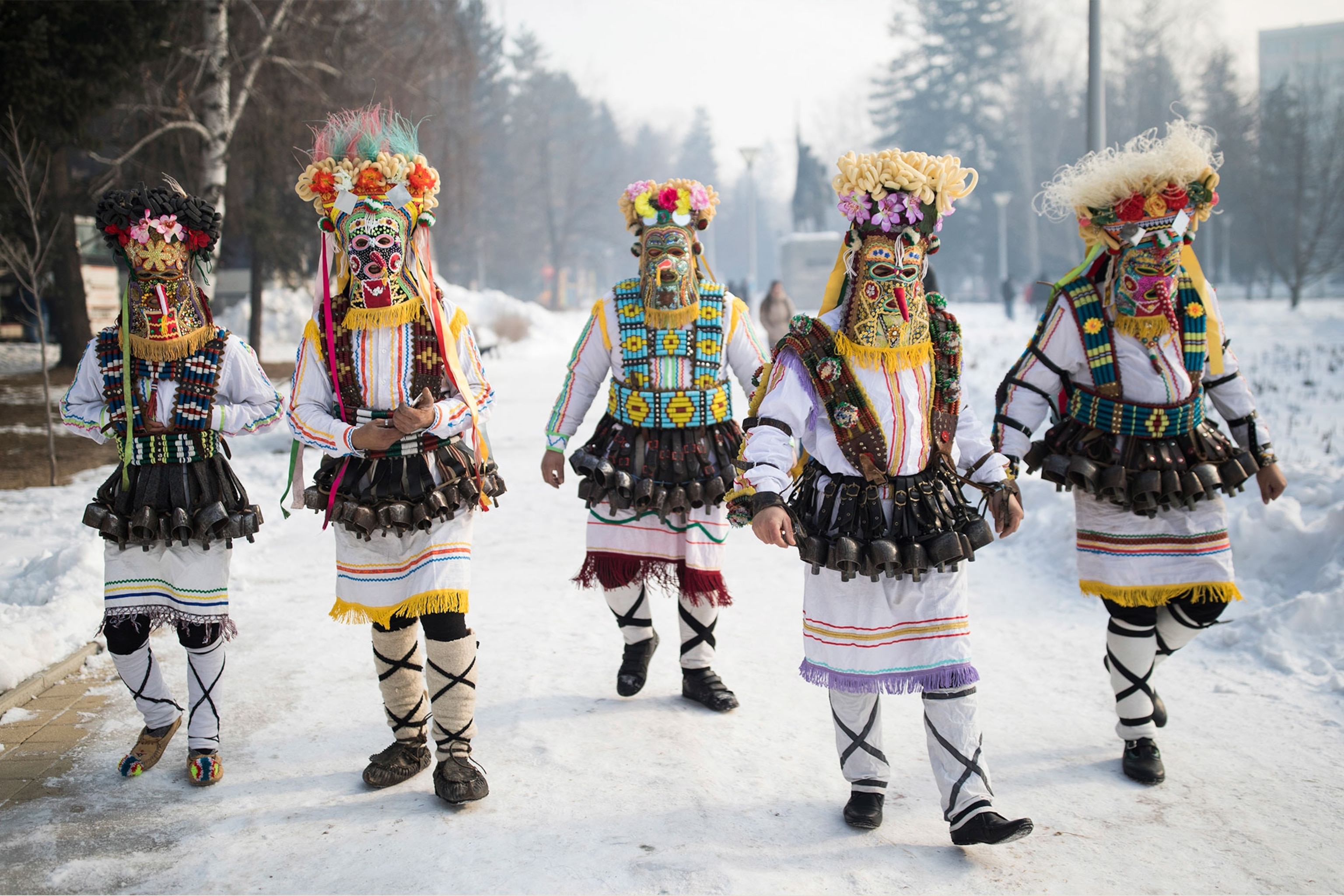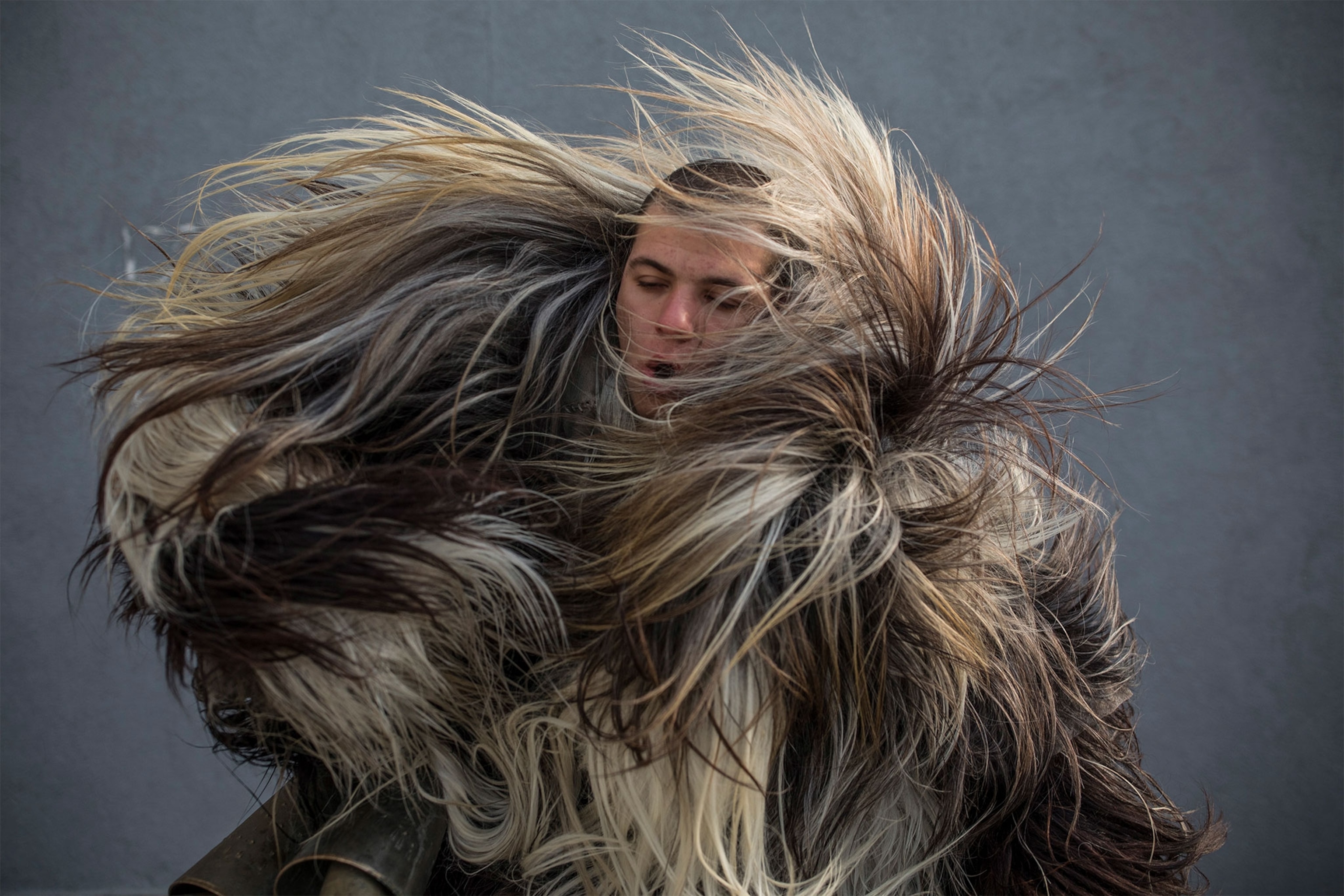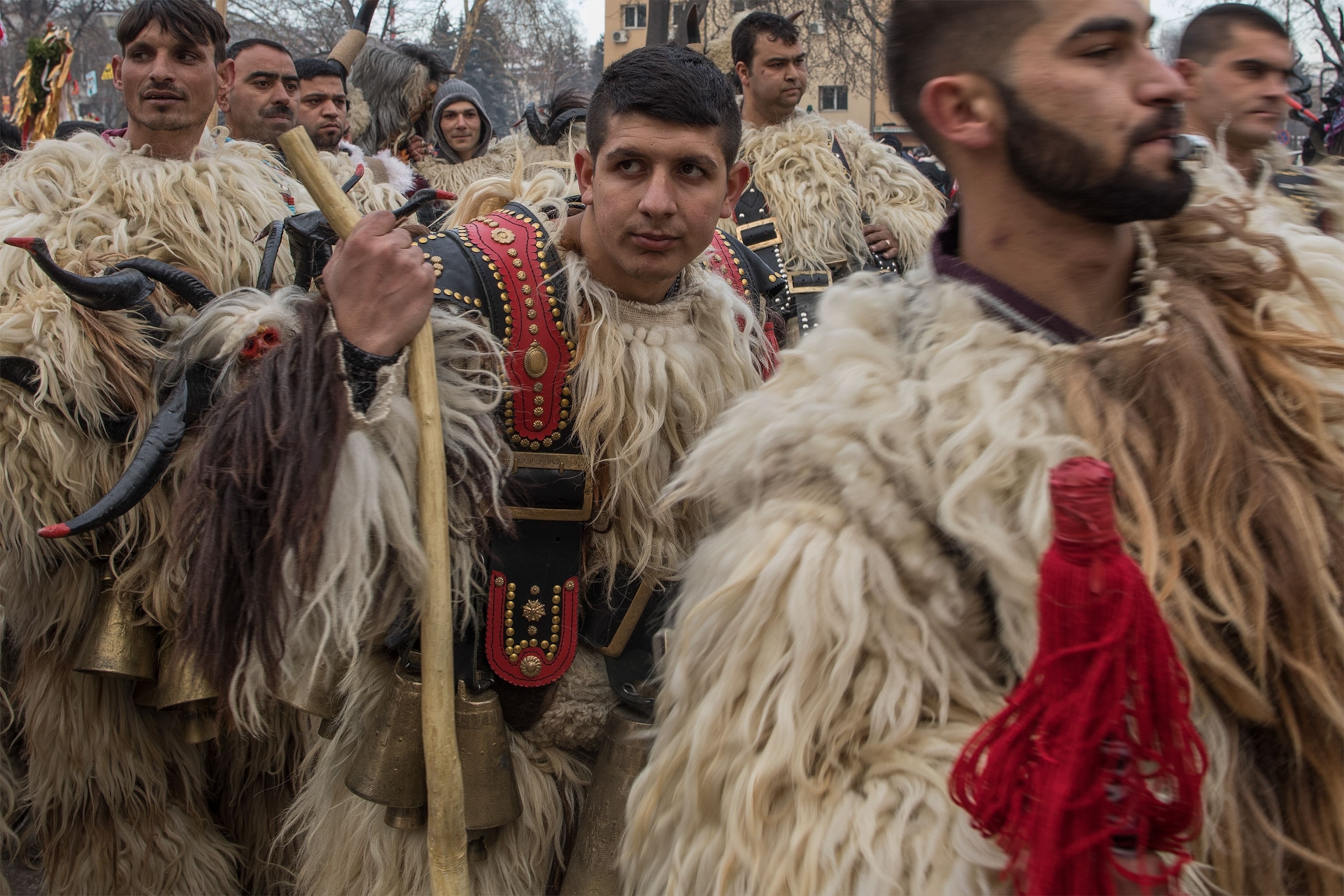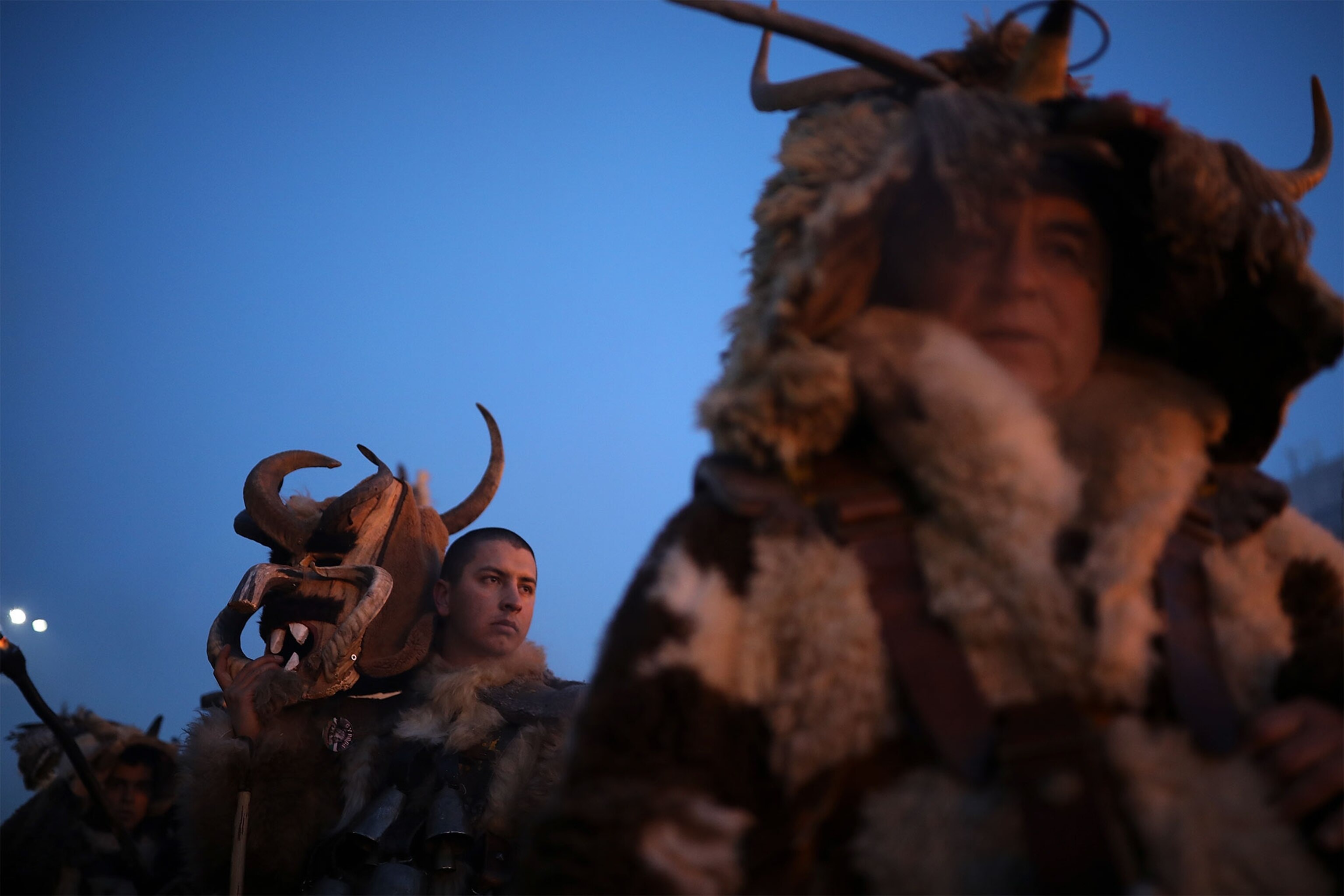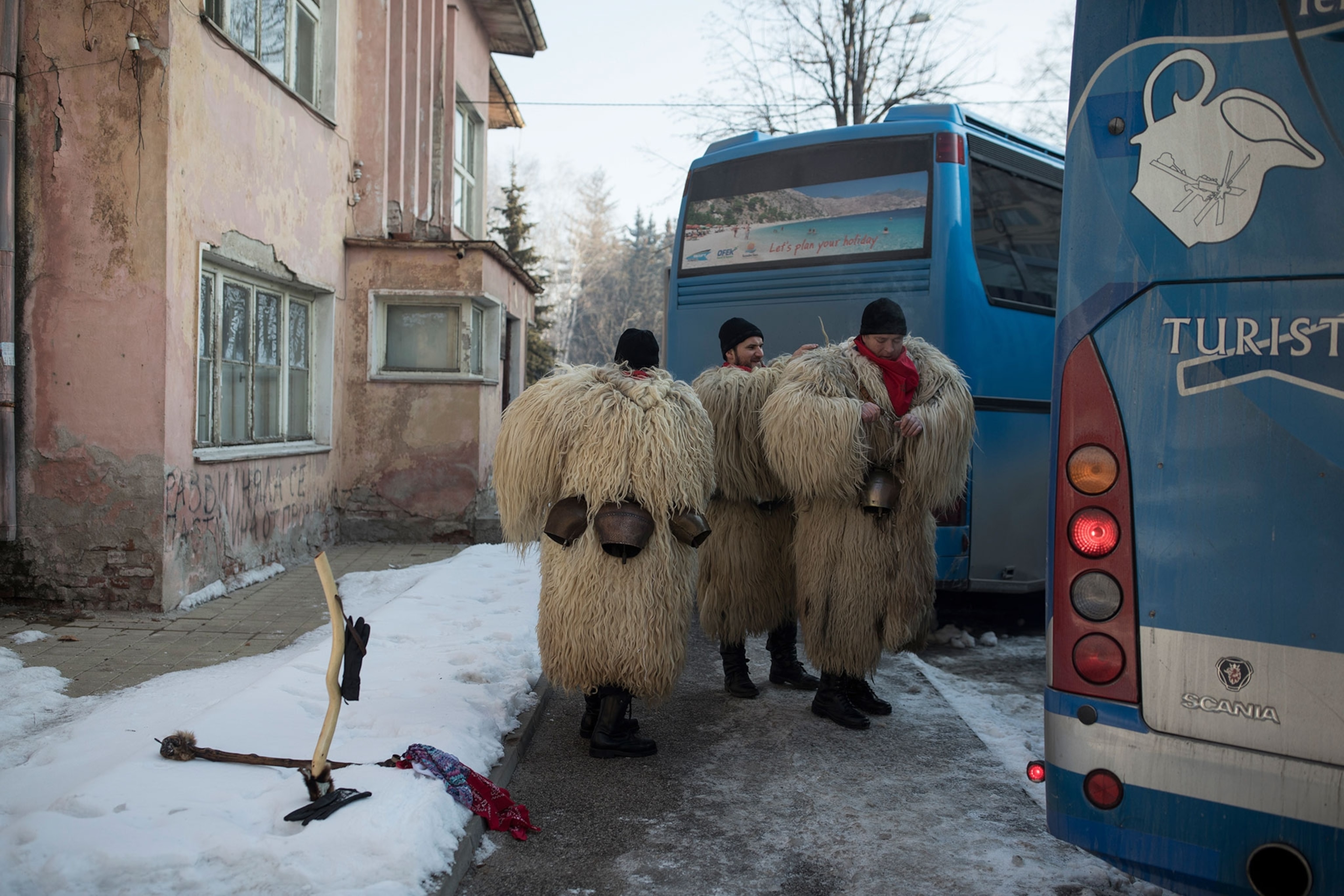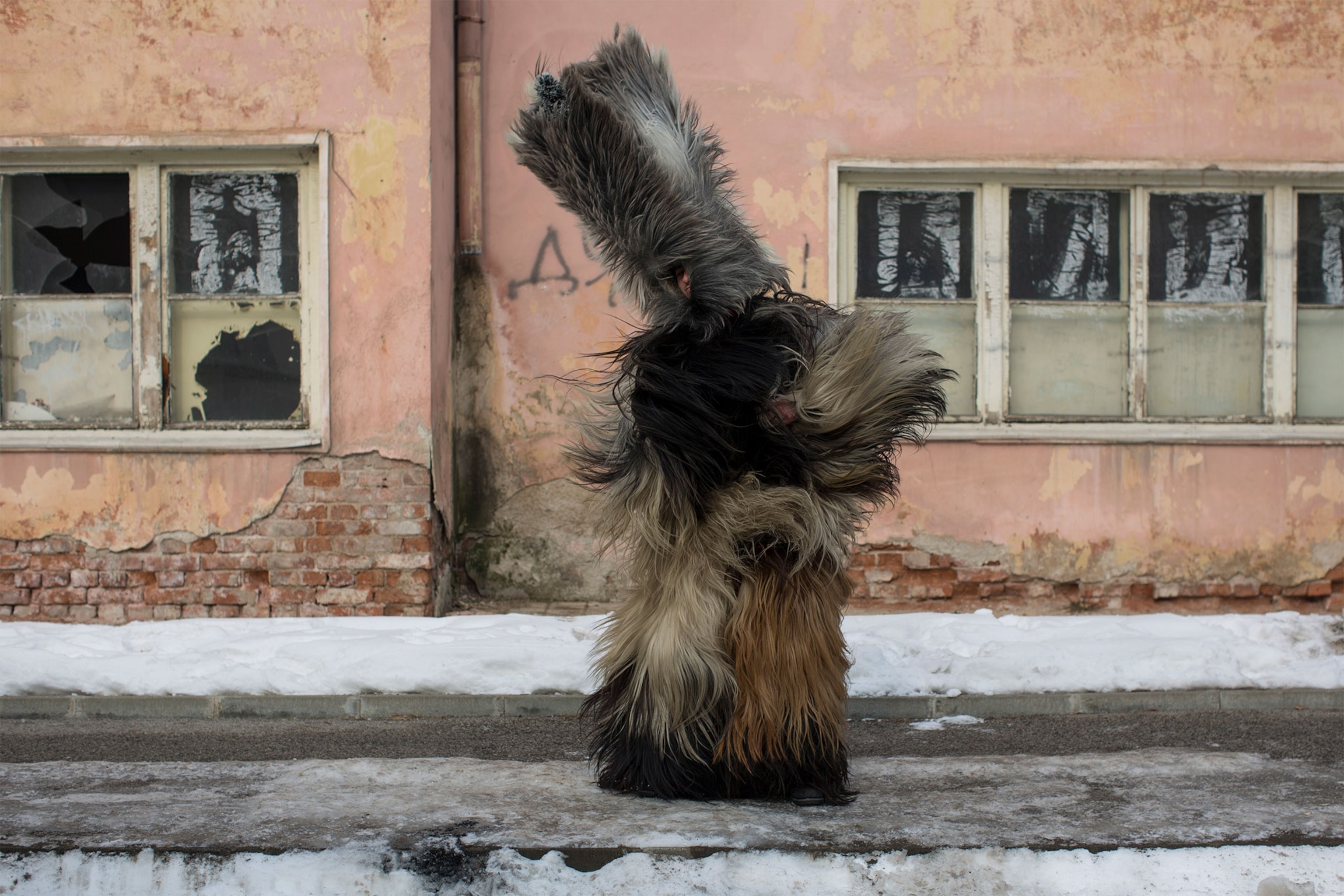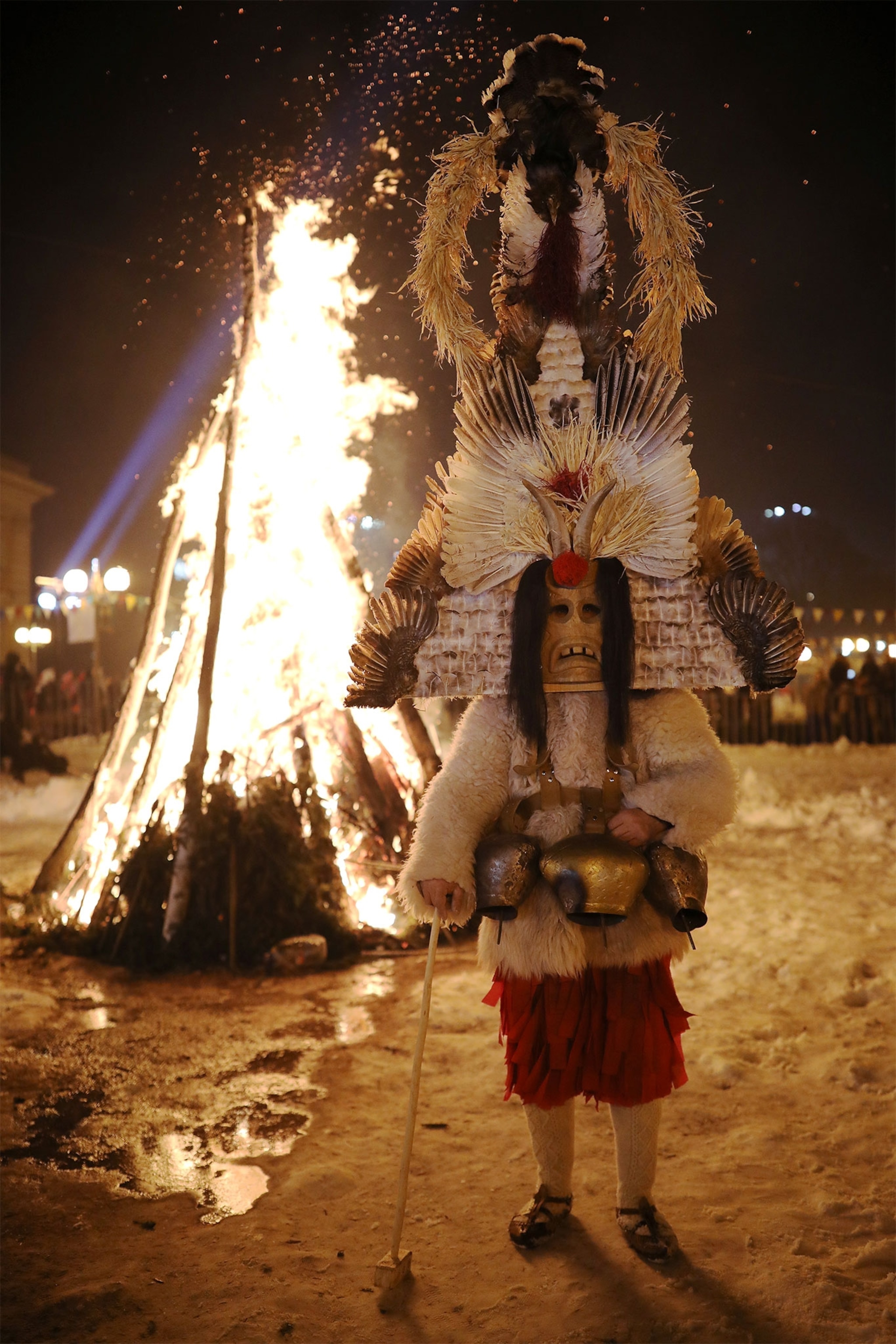Revel in the Ornate Majesty of This Pagan Festival
Steeped in tradition, the masks and costumes worn by festival goers are meant to inflict terror on bad spirits.
During the last weekend of January, the industrial town of Pernik, Bulgaria, is flooded with color and celebration for the annual Surva festival. The event, officially called the International Festival of Masquerade Games, is one of the largest of its kind in the Balkans, attracting tourists throughout Europe and Asia.
The festival was officially held for the first time in Pernik in 1966, but the tradition of winter masquerading has its roots in ancient and pagan traditions. During a two-day parade, participants take to the streets in ornate costumes and ostentatious masks that are intended to scare away ill-intentioned spirits and bring luck for the coming spring.
Costumes are typically made from goat or sheep furs and decorated with colorful fabrics, beads, and papier-mache. Mask styles typically vary by region, but folklore participants are judged on their costumes and from a series of performances held on the street and an outdoor stage.
Traditionally, festival participants, or kukeri, have been comprised of mostly single men but as times change, more women have begun to participate in the festivities.
This year's festival saw record numbers of attendance. Bulgarian news sites reported that 3,900 men, 1,300 women, and 1,200 children participated as kukeri.
As of 2015, the festival has been designated as a UNESCO site of intangible cultural heritage.
